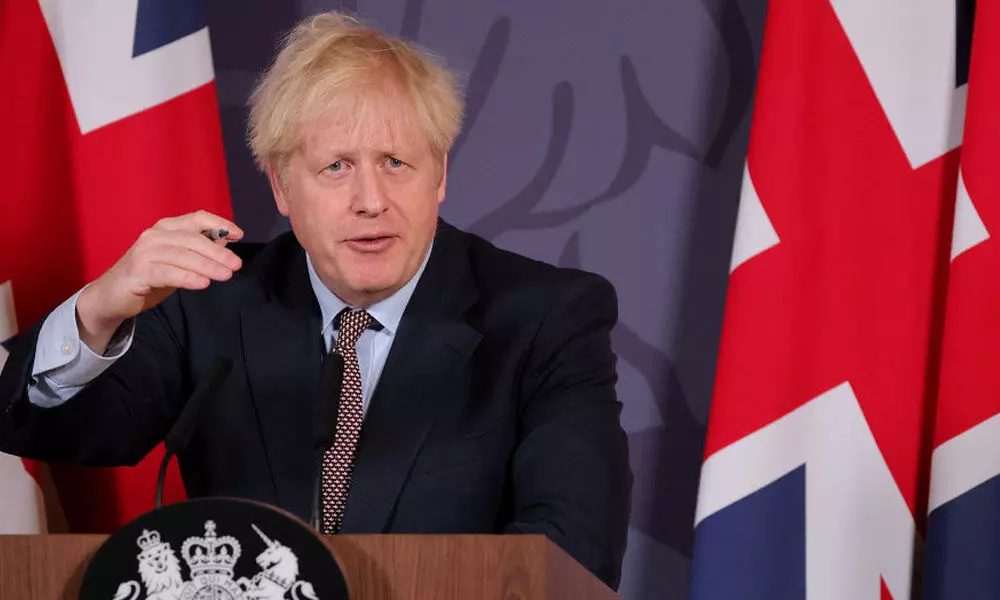A contentious trade deal?

Prime Minister Boris Johnson
London and Brussels have announced a Brexit trade deal
London and Brussels have announced a Brexit trade deal. "The deal is done," Prime Minister Boris Johnson announced on the eve of Christmas, on Twitter. This is the first post-Brexit trade deal even as the United Kingdom is all set to leave the EU market on January 1. The deal covers not only trade in goods and services, but transport, energy, fisheries, data protection, social security, among others. "This will create barriers to trade in goods and services and to cross-border mobility and exchanges that do not exist today - in both directions," said the European Union, in a statement. This deal is being termed as a fair and balanced one by all which protects EU interests.
The news is a welcome development for businesses in the U.K. and Europe, and puts an end to more than four years of what has, at times, seemed interminable economic uncertainty. EU Chief Negotiator Michel Barnier agreed that it was a day of relief but "tinged with some sadness." This deal sets the terms for a post-Brexit future as close neighbours living apart. No one imagined that it would be such a smooth sail. There was no guarantee that the talks would succeed on this. Arguments in Brussels between Michel Barnier and David Frost, his British counterpart, went on through the week.
Three familiar issues were at stake: a level playing field for regulation to prevent unfair competition; some continuing EU countries' access to British fishing waters; and a dispute-settlement mechanism. In the end Britain President, Johnson and President of the EU Commission, Ursula von der Leyen was brought in to make the necessary compromises. As has been the pattern since the 2016 referendum, Britain has generally had to make most of the concessions, abandoning its initial position of keeping most of the benefits of the EU's single market without the obligations. This reflects the power balance between the two, as well as the fact that no-deal would have been more damaging to Britain than to the EU.
The prime minister acknowledged he had been forced to give ground on his demands on fishing. Fishing makes up just 0.12 per cent of the UK's economy but the negotiations went down to the wire over what EU boats are allowed to catch in UK waters. In future 25 per cent of EU boats' fishing rights in UK waters will be transferred to the UK fishing fleet, over a period of five-and-a-half years.
Barrie Deas, the head of the National Federation of Fishermen's Organisations, said the UK had made "significant concessions on fish", and "there will be a lot of disappointed and frustrated fishermen tonight". That a deal has been struck itself is big good news. The fine print has a lot to say and several contentious issues could crop up. This is bound to happen. Discussions are said to have been elaborate and down to the wire on all the issues. It is said that for most British, the more immediate impact will be losing the right to free movement in the EU. Northern Ireland will remain in the single market while Britain students will have no entry into EUs Erasmus scheme.









